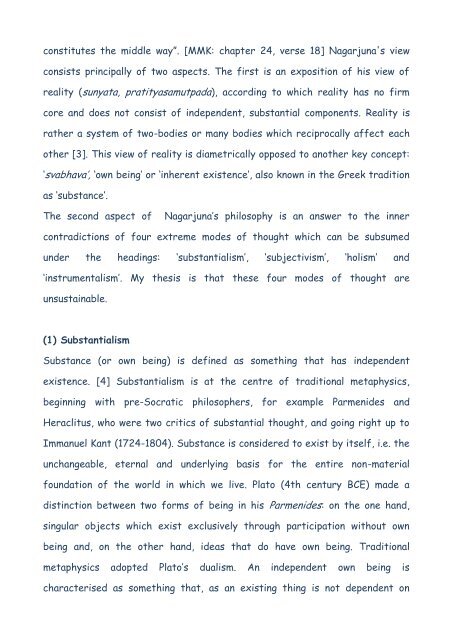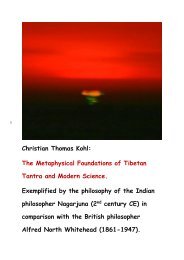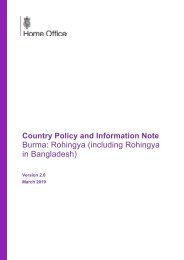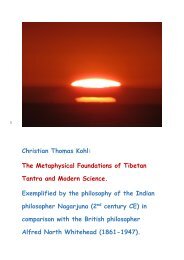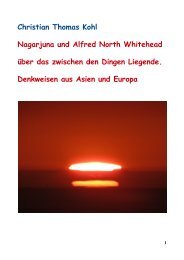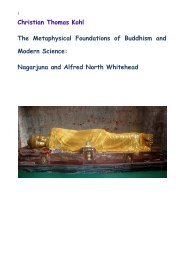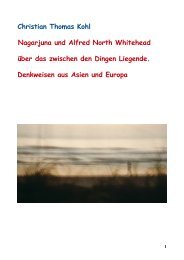The Metaphysical Foundation of Buddhism and Modern Science
You also want an ePaper? Increase the reach of your titles
YUMPU automatically turns print PDFs into web optimized ePapers that Google loves.
constitutes the middle way”. [MMK: chapter 24, verse 18] Nagarjuna's view<br />
consists principally <strong>of</strong> two aspects. <strong>The</strong> first is an exposition <strong>of</strong> his view <strong>of</strong><br />
reality (sunyata, pratityasamutpada), according to which reality has no firm<br />
core <strong>and</strong> does not consist <strong>of</strong> independent, substantial components. Reality is<br />
rather a system <strong>of</strong> two-bodies or many bodies which reciprocally affect each<br />
other [3]. This view <strong>of</strong> reality is diametrically opposed to another key concept:<br />
‘svabhava’, ‘own being’ or ‘inherent existence’, also known in the Greek tradition<br />
as ‘substance’.<br />
<strong>The</strong> second aspect <strong>of</strong><br />
Nagarjuna’s philosophy is an answer to the inner<br />
contradictions <strong>of</strong> four extreme modes <strong>of</strong> thought which can be subsumed<br />
under the headings: ‘substantialism’, ‘subjectivism’, ‘holism’ <strong>and</strong><br />
‘instrumentalism’. My thesis is that these four modes <strong>of</strong> thought are<br />
unsustainable.<br />
(1) Substantialism<br />
Substance (or own being) is defined as something that has independent<br />
existence. [4] Substantialism is at the centre <strong>of</strong> traditional metaphysics,<br />
beginning with pre-Socratic philosophers, for example Parmenides <strong>and</strong><br />
Heraclitus, who were two critics <strong>of</strong> substantial thought, <strong>and</strong> going right up to<br />
Immanuel Kant (1724-1804). Substance is considered to exist by itself, i.e. the<br />
unchangeable, eternal <strong>and</strong> underlying basis for the entire non-material<br />
foundation <strong>of</strong> the world in which we live. Plato (4th century BCE) made a<br />
distinction between two forms <strong>of</strong> being in his Parmenides: on the one h<strong>and</strong>,<br />
singular objects which exist exclusively through participation without own<br />
being <strong>and</strong>, on the other h<strong>and</strong>, ideas that do have own being. Traditional<br />
metaphysics adopted Plato’s dualism. An independent own being is<br />
characterised as something that, as an existing thing is not dependent on


